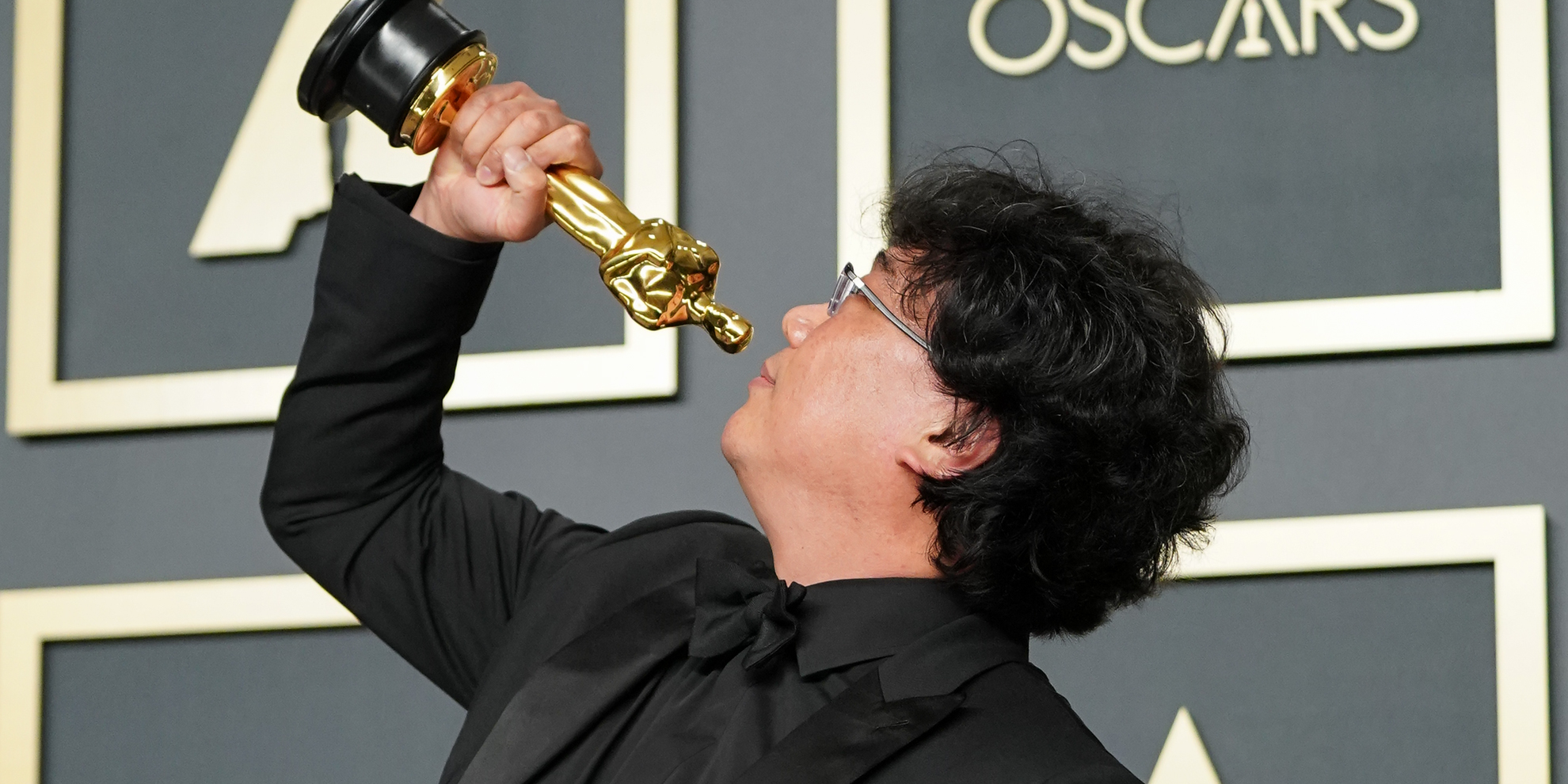- The South Korean film “Parasite” made Oscars history on Sunday, becoming the first film not in the English language to ever win best picture.
- It’s been hailed as a major victory for South Korea, and Asian cinema in general.
- But its Oscars wins did not come without its critics: Some people said a non-English-language film should not have won best picture, and others made jokes linking “Parasite” with the coronavirus, which originated in China.
- Visit Insider’s homepage for more stories.
“Parasite” may have made Oscars history, but the South Korean film still isn’t free from racist criticism that’s flooded social media and the movie industry itself in the hours after its historic win.
“Parasite,” a movie about class inequality in South Korea, became the first film not in the English language ever to win best picture at the Oscars on Sunday. It also won best original screenplay, best director, and best international feature film.
People across South Korea celebrated what they saw as a national achievement, with President Moon Jae-in starting a Monday meeting with a round of applause and a speech congratulating the film.
Some TV networks interrupted their regular programming to report breaking news of the award, and a presenter at South Korean TV had to apologize to viewers for screaming when “Parasite” was named best picture, The Guardian reported.
But with the celebrations - widely heralded as a victory for Asian cinema as a whole - also came racist comments and criticism of a South Korean film winning big at the Oscars.

Multiple people protested the "Parasite" win, with many suggesting that a non-English movie should not have won the Oscars, an American prize.
Jon Miller, a reporter at conservative news site Blaze TV, tweeted shortly after Bong delivered his best-picture speech, which was mostly in Korean, that "these people are the destruction of America."
A man named Bong Joon Ho wins #Oscar for best original screenplay over Once Upon a Time in Hollywood and 1917.
Acceptance speech was: “GREAT HONOR. THANK YOU.”
Then he proceeds to give the rest of his speech in Korean.
These people are the destruction of America.
— Jon Miller (@MillerStream) February 10, 2020
Hours later, he claimed in a follow-up tweet that "these people" referred to "obviously not Koreans but those in Hollywood awarding a foreign film that stokes flames of class warfare over 2 films I thought were more deserving simply to show how woke they are."
An unnamed actress, who voted as part of the Academy's actors branch, also told The Hollywood Reporter last week that "Parasite" was "beautifully done," but added: "I don't think foreign films should be nominated with the regular films," seemingly suggesting that "regular" films mean English-language films.
Veteran Korean-American John Cho - behind "Searching" and the "Harold & Kumar" movies - also tweeted that he "got congratulated A LOT" when he was standing by the people who worked on "Parasite."
Others suggested a link between "Parasite," a South Korean film, and the deadly Wuhan coronavirus, which originated in China.
Some people also appeared to have confused "Parasite" as a movie about literal parasites.
I think the parasite producers threatened to spread corona if they didnt get awards 😂😂 pointless movie #TheOscars
— M (@MokaBosh) February 10, 2020
Asia has given us Parasite and the Corona Virus in 2020!....so there's that!
— Orlo (@TeamGrumble) February 10, 2020
Congrats to “Parasite” for winning the Best Picture Oscar!#Oscars pic.twitter.com/T9AqOMjWIB
— CompoundBoss (@CompoundBoss) February 10, 2020
Corona Virus took over the oscars...too soon?? #TheOscars #Parasite
— TCFC (@TRAPCFC) February 10, 2020
Many Asian people in places like the US, UK, Canada, and Italy have also reported experiencing racist and xenophobic incidents as the coronavirus continues to spread around the world. Many of the Asians in question have never even to China.
Nevertheless, "Parasite" is a huge victory for Asian cinema, and foreign-language films more broadly.
In an interview with Vulture last October, Boon himself said: "The Oscars are not an international film festival. They're very local."
Daniel Dae Kim - the Korean-American actor famous for shows like "Lost" and "Hawaii Five-O" - tweeted after the Oscars: "Guess the #Oscars aren't so 'local' anymore," calling the "Parasite" wins "truly historic."
Perhaps "Parasite's" victories will pave the way for more foreign-language movies to become mainstream, too.
As Boon said while accepting the Golden Globe for the best foreign-language film last month: "Once you overcome the 1-inch-tall barrier of subtitles, you will be introduced to so many more amazing films."
- Read more:
- Bong Joon Ho won 4 Oscars, tying Walt Disney's record for most Oscars won in one night
- Tom Hanks and Charlize Theron led a cheer to turn the Oscars stage lights back on after the show seemed to cut the 'Parasite' acceptance speech short
- The Wuhan coronavirus is causing increased reports of racism and xenophobia against Asian people at college, work, and supermarkets
- Here are all the 2020 Oscar winners











